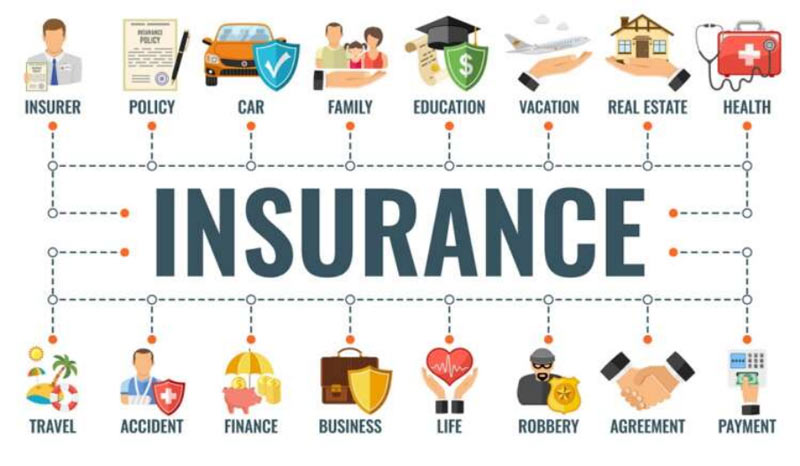Insurance coverage protects individuals, businesses, and assets from potential risks and losses. In essence, insurance coverage refers to the extent of protection an insurance policy provides. It outlines the specific risks or perils an insurance policy will financially safeguard against and the terms and conditions under which the policyholder will receive compensation or reimbursement. This detailed post will discuss insurance coverage, its advantages, and consumer insurance options.
Furthermore, Insurance protects your health, property, assets, vehicle, life, etc. Insurance coverage can also be considered as your shield, and it also provides emergency financial assistance for any unfortunate event.
What are the Key Components of Insurance Coverage?
There are some vital components of Insurance Coverage. Let's explore the key components:
Covered Risks or Perils
Insurance coverage defines the risks or perils for which the policyholder will receive protection. For example, auto insurance coverage may include accidents, theft, or vandalism. Health insurance usually provides protection against hospitalization, medications as per prescription, and any other medical bills. Understanding the specific risks an insurance policy covers is essential for selecting appropriate coverage.
Policy Limits
Insurance policies often limit the compensation or reimbursement an insurance company will provide. These limits can be specified as a maximum dollar amount, a percentage of the insured value, or sub-limits for specific coverage categories. Policyholders must be aware of these limits to ensure adequate coverage for their needs.
Deductibles
Deductibles are the out-of-pocket amounts that policyholders must pay before insurance coverage comes into effect. Deductibles are a type of shared risk with the other policyholders. If you choose the option of higher rate deductibles, it will result in lower insurance premiums. However, getting deductibles with lower return usually entail higher insurance costs. Understanding the deductible obligations is crucial when considering insurance coverage.
Exclusions
Insurance coverage also includes exclusions, which are events, circumstances, or conditions not covered by the policy. Exclusions can vary depending on the type of insurance. For example, health insurance may exclude coverage for pre-existing conditions, while liability insurance may exclude intentional acts. Policyholders should carefully review policy exclusions to understand the limitations of their coverage.
Benefits of Insurance Coverage:
The following are the Benefits of Insurance Coverage:
Financial Protection
The primary benefit of insurance coverage is financial protection. It safeguards policyholders against unexpected events that could lead to substantial financial losses. By paying regular premiums, individuals and businesses transfer the risk of potential losses to the insurance company, providing them with peace of mind and a safety net when adverse events occur.
Risk Management
Insurance coverage serves as an essential tool for managing risks. It allows individuals and businesses to mitigate potential losses by transferring the financial burden to the insurance provider. By spreading the risk across a larger pool of policyholders, insurance companies can effectively manage and absorb the costs associated with claims, providing stability and security to their customers.
Peace of Mind
Insurance coverage provides peace of mind, reducing anxiety and uncertainty. Knowing that potential risks and losses are covered can alleviate stress and allow individuals and businesses to focus on their daily activities without worrying about unforeseen events. This peace of mind is precious in situations where significant financial losses could severely impact one's personal or professional life.
Legal Compliance
Insurance coverage is often a legal requirement in various situations. For example, auto insurance is mandatory in most jurisdictions to protect against accidents and liabilities. Businesses may need workers' compensation or professional liability insurance. Maintaining proper insurance coverage ensures compliance with legal obligations and protects against potential legal and financial consequences.
Business Continuity
Insurance coverage is essential for businesses to ensure continuity in the face of unexpected events. It protects businesses from property damage, liability claims, or disruptions in operations due to unforeseen circumstances. With the right coverage, businesses can recover and resume operations without significant financial setbacks, enabling them to maintain stability and continue serving their customers.
Types of Insurance Coverage

Following are the types of Insurance Coverage:
Health Insurance
Health insurance provides extensive coverage against every doctor visit, hospitalization, operation, medication as per the prescriptions, and any other preventative care. It ensures individuals have access to necessary healthcare services without incurring excessive costs.
Property Insurance
Property insurance covers damage or loss to physical assets, such as homes, buildings, or personal belongings. It protects against risks like fire, theft, natural disasters, and vandalism, providing compensation for repairs, replacements, or rebuilding.
Auto Insurance
Auto insurance provides coverage for vehicles and drivers. It includes liability coverage for bodily injury and property damage caused to others and coverage for damage or theft of the insured vehicle. Optional coverages like collision and comprehensive insurance offer additional protection.
Life Insurance
Life insurance coverage offers financial protection to beneficiaries in the event of the policyholder's death. It provides a death benefit that can help cover expenses like funeral costs, outstanding debts, mortgage payments, and income replacement for surviving family members.
Liability Insurance
Liability insurance protects individuals and businesses from legal liabilities and potential lawsuits. It covers costs associated with legal defense, settlements, or judgments resulting from bodily injury or property damage caused to others.
Business Insurance
Business insurance includes specialized coverage for enterprises according to the respective needs of the business. It includes property insurance, liability insurance, workers' compensation insurance, business interruption insurance, and professional liability insurance. Business insurance protects against business losses, liabilities, and operational interruptions.
Final Takeaway

Conclusively, insurance coverage is fundamental for managing risks and providing financial protection against potential losses. Life insurance provides individual security, legal compliance, and assurance of uninterrupted operations. Understanding insurance coverage's essential components and advantages helps people and organizations in choosing the right coverage to safeguard their assets and financial future.

Credit Card Default: How It Happens, What To Do About It

How to Back Out of Your Mortgage the Right Way

Using Option Trading Strategies

How to Save Money on Medical Bills?

How to Fill out Form 8829

How to Increase Your Current Line of Credit

AOTC: How to Claim the American Opportunity Tax Credit (AOTC)?

How To Increase Your Mortgage Preapproval Amount

Mortgage Options for Seniors

Local Tax: What is Impact of Local Taxation?

How to Read Double Top and Double Bottom Pattern?
